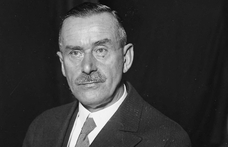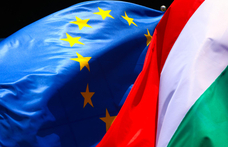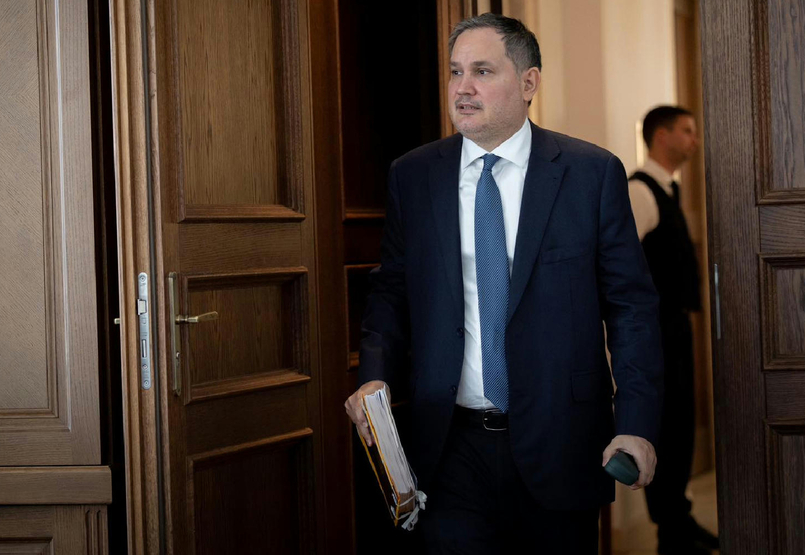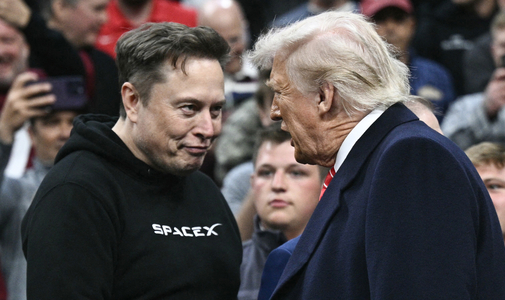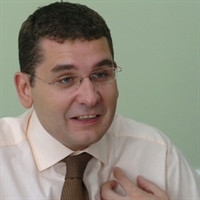 © Marton Szilvia |
Has anybody responded to PM Ferenc Gyurcsany's recent challenge to haggle a better price out of Gazprom, Russia's state-owned energy giant?
The economics ministry is planning to make Hungary more valuable in Gazprom's eyes. We are doing this partly because we will be buying far more gas from them once the Russia-Turkey gas pipeline has been extended to Hungary. We will need to import more gas because our gas requirements are going to grow continuously over the next 10 to 15 years, while our own gas reserves, which only cover a fifth of our needs, are declining. The other reason is that we will become more important to Gazprom if Hungary stores the gas that will supply the whole of Central and Eastern Europe. That is, we would hold the region's strategic gas reserves. As a larger customer, we will be in a much better negotiating position with respect to Gazprom, and so we should be able to get a better price. But don't ask me the exact percentage...
It is remarkable that Mol reached a deal with Gazprom on carrying out a feasibility study on the construction of a huge storage facility in Hungary when you were in Vienna two weeks ago with your Turkish, Bulgarian, Romanian and Austrian colleagues, signing a declaration of intent to construct the Nabucco gas pipeline which would avoid Russia. Did you consult with Mol on this one, since the state has a golden share in the company, guaranteeing a right of veto.
Absolutely. I discuss gas strategy with Mol's management on an almost daily basis. There is no way you can sign major deals like that without first reaching agreement with the oil company.
The aim of this pipeline is to reduce the EU's dependence on Russia by importing Iranian, Azeri and Kazakh gas. Won't the Russians be upset?
We made it clear to the Russians that they had proven a reliable long-term partner, but that we had become alarmed when the gas price dispute between Russia and Ukraine in January had made our own gas supply uncertain. We also explained that we understood that they would like to have influence over natural gas fields outside Russia - especially in Asia, Turkmenistan and Azerbaidzhan - but that they already had a gas supply treaty with Iran. But we had to contain the risks to Hungary's gas supply. As minister, my task is to make sure our energy supplies are secure. I want energy security to be a high foreign policy priority for the Gyurcsany government. Hungary is not threatened militarily but in terms of energy policy. More than 80 per cent of Hungary's natural gas comes from Russia. We are overly dependent on Russian gas, and Russia clearly wants to strengthen its monopoly.
So you want to have a couple more irons in the fire?
 © Marton Szilvia |
Yes. Gazprom is a strategic partner of ours, but we will deal with everyone we can, including by building a pipeline through Hungary. I will work with anyone who wants to invest in alternative energy sources, and I want to build up strong market, competition and consumer protection. If the Polish, Czech, Slovak or Slovene energy minister came to me and suggested we build a North-South gas pipeline, then I would sign a declaration of intent immediately. I've been working since January on an active Central and East European geopolitical energy strategy. I have been dealing with the EU institutions, and I am about to send the Finnish EU presidency our analysis of our region's energy policy. I have met the Visegrád and Balkan energy ministers twice in the past six months. We are in favour of building a liquified natural gas port on the Croatian island of Krk, which would bring African and Middle Eastern gas to Hungary. We would like Gaz de France and E.On, which bought Mol's gas storage and trading interests, to bring us more gas. If Hungary could win the contract to store 10bn cubic metres of Gazprom's gas, if the Blue Stream pipeline's distribution point would be here in Hungary, and if we could bring Nabucco here as well, and if we could also get hold of liquified natural gas, then there would be practically no energy risk - and the state would also earn money from the transit fees.
Except Austria, led by their energy company OMV, also wants to become Central and Eastern Europe's gas distribution centre. What is Hungary's winning formula?
It's true that this is a brutal competition, almost a struggle for survival. Everyone wants to be the centre. But Hungary is well-placed to conquer the new markets. Its location means that it is unavoidable for both Gazprom and several European countries. There is no strategic gas store in the Balkans, and in Mol we have a strong, regional multinational. Mol is a natural ally for Gazprom - it is no coincidence that the two companies have a long-term contract that runs until 2015. It is important that Gazprom wants to build its gas store in Hungary, not in Turkey, Bulgaria or Romania, and that it chose Mol as its partner. Of course, it is also significant that the Gyurcsany government worked to improve Hungary's relations with Russia.
Shouldn't the government focus on more environmentally friendly sources of energy rather than on securing new sources of gas?
The government is supporting a project to use 2-3m tonnes of grain a year as a source of renewable energy and cultivate the crops needed for biomass generation. We would like to see substantial quantities of bioethanol, butanol production, since we want Hungary to play an active role in this area in the Central and East European region.
Hungary wastes a lot of energy. It uses one and a half times more than the EU average to produce one unit of GDP. How can you change this?
The power stations need modernising. We can support this with credits, but the main thing is to create true market conditions. We are implementing a Free Democrat proposal to install high-efficiency lightbulbs in public buildings, including ministries, hospitals and schools. We could then improve insulation and improve heating systems. This could be financed using private capital, using a PPP structure. There are 600,000 council-owned tower blocks, which are a disaster from an energy-efficiency point of view. We hope to spend up to HUF10bn a year on making them more efficient using EU money.
KÁROLY CSABAI





